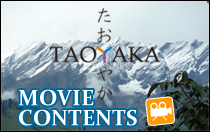(Sep.19) Taoyaka Seminar in Tokyo was held
(Sep.19) Taoyaka Seminar in Tokyo wad held
The Taoyaka Program held a seminar at the Campus Innovation Center Tokyo to introduce the program and recruit students. At the opening of the meeting, Mr. Atsushi Uchida, Deputy Director, Infrastructure and Peacebuilding Department, Japan International Cooperation Agency (JICA), gave a greeting.
This seminar was co-sponsored with the IDEC degree acquisition seminar. First, Professor Mari Katayanagi and Professor Kinya Shimizu of the Graduate School for International Development and Cooperation (IDEC) explained about research and degree acquisition in the field of peace and education, respectively.
Next, an overview of the program was given by assistant professor Rie Usui, Graduate School of Letters, who completed the program, and research introductions were given by faculty members of the Cultural Creation, Technical Creation, and Social Implementation Courses. Professor Funck Carolin, in charge of the Cultural Creation Course, Graduate School of Integrated Sciences gave a research introduction entitled “How will international tourism influence less-favored areas in Japan?”, Professor Yuichi Kurita, Technical Creation Course, Graduate School of Engineering, explained his research introduction entitled “Physical assistive system using robotics, VR, and AI technology”, Prof. Akimasa Fujiwara, Graduate School for International Development and Cooperation gave a research introduction entitled “Can self-driving technology save disadvantaged areas?” as well.
After that, Hiroshi Zenitani from RICOH Company, Ltd., a program graduate, explained the experience of the program and the career after the completion.
Finally, we received a closing remark from Mr. Akira Sudo, Director General for the Program, Cabinet Office.
On that day, there were about 20 general participants including students from Nagoya University and Keio University as well as participants from general companies. In the seminar, in support and development for conditionally disadvantaged areas in Japan and overseas, we visit the local community, listen to local needs, use new science and technology and cross-sectoral knowledge, the necessity to solve the problem and the specific measures were discussed.







